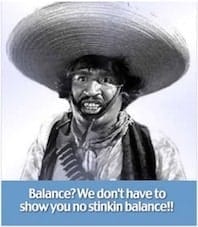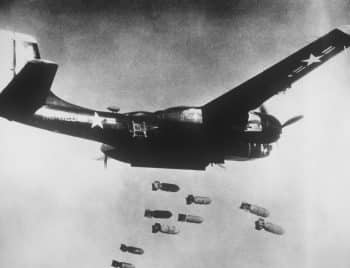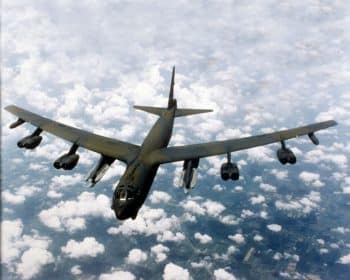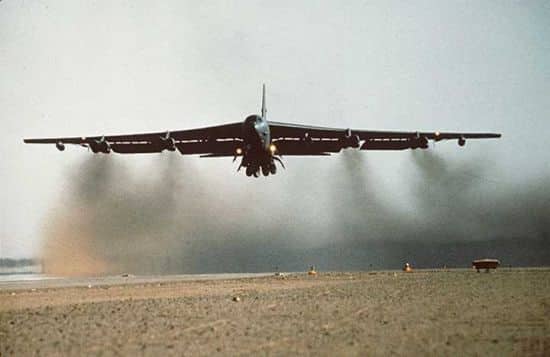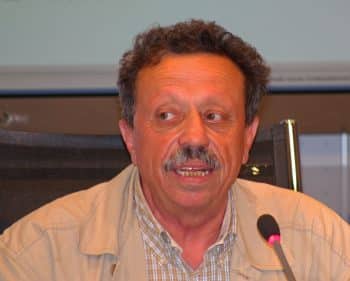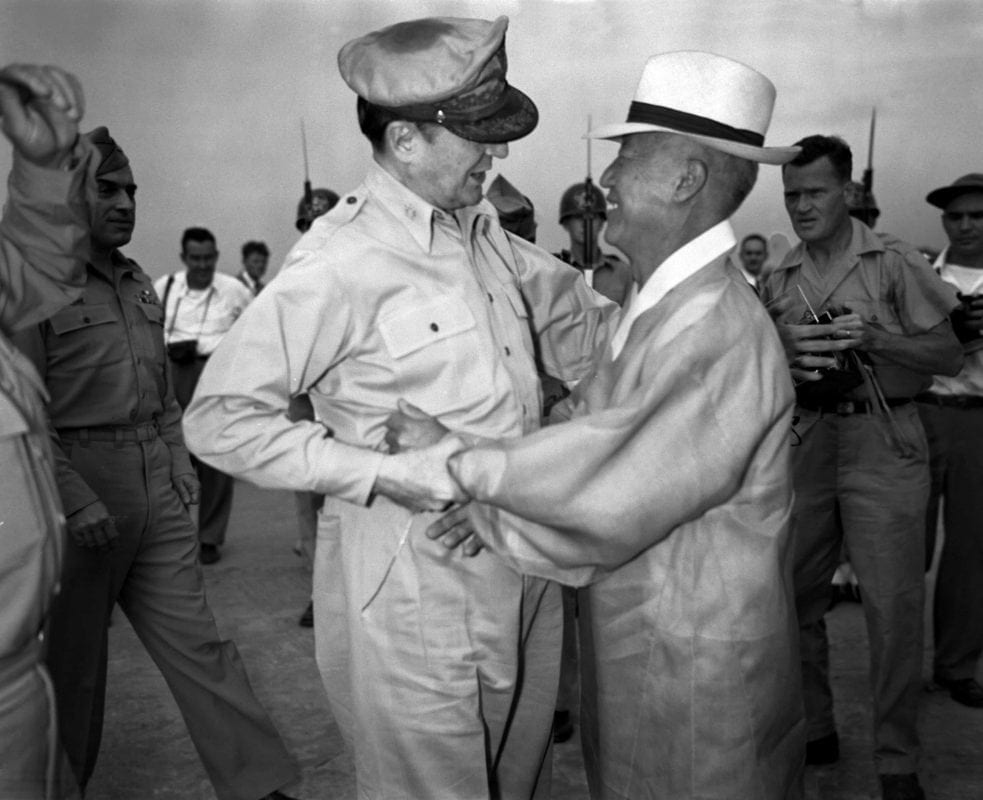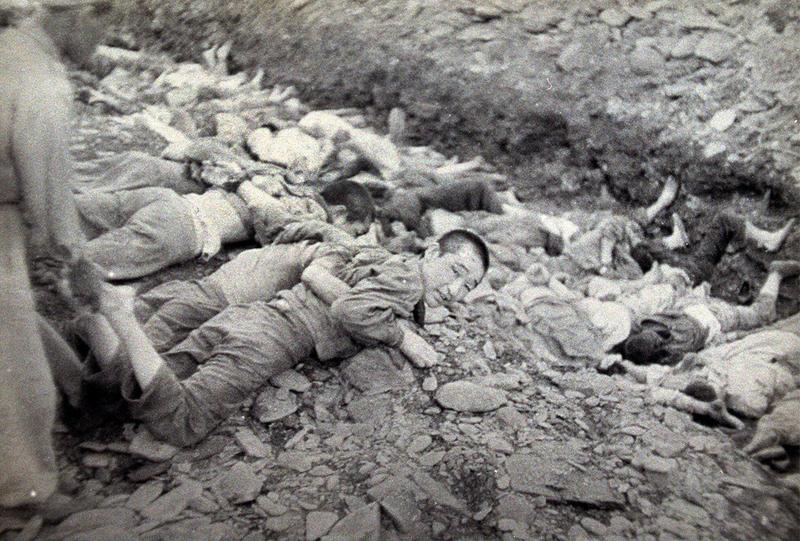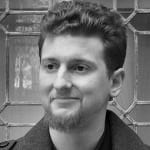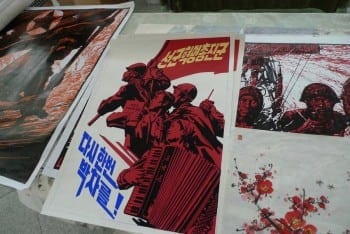South Korean Man Questions Anti-Communist Dogma
![]() Andre Vltchek
Andre Vltchek
Itinerant Philosopher and Journalist
“The coarse lies of the ROK’s central intelligence against North Korea, which used to serve as the most effective means of consolidating the conservative ruling party’s power, are now being uncovered one after another…Thus now I have come to recognize the recently implemented sanctions against North Korea as an ‘injustice’.”
In Conversation with Mr. Kim Dol
“Thus now I have come to recognize the recently implemented sanctions against North Korea as an ‘injustice’.”
Above is a short excerpt from the letter that I received in May 2016, a letter from one of my readers, Mr. Kim Dol, a young South Korean professional based in Seoul.
Mr. Kim Dol, it seems, has been lately suffering from a gradual but irreversible loss of faith in the official dogmas that have been shaping his worldviews for most of his life – dogmas manufactured by his own country, South Korea (ROK), as well as those that have been imported from the West. He discovered countless contradictions between simple logic and what he was told, and expected to believe. He began questioning things, and searching for alternative sources.
That is how he found me. Online, he began reading my essays, as well as the essays of other comrades.
His letter arrived when I had been living for a month in Buenos Aires, Argentina, working on my new political novel while literally confronting the neo-liberal and neo-fascist government of the [recently installed] Argentinean President, Mauricio Macri.
Argentinian people had been fooled and they were now quickly waking up to a social, economic and political nightmare. The US was going to build military bases in at least two territories of this proud and essentially socialist nation. Prices were going up, privatization was in full-swing, and social benefits melting away. Protests erupted all over the capital. The fight for Argentina was on!
Simultaneously, in neighboring Brazil, a clique of cynical, corrupt, white and mostly evangelical members of the pro-Western ‘elites’ managed to overthrow the socialist government of Dilma Rousseff.
Mr. Kim Dol’s letter was timely. The Empire was on the offensive, destroying Latin America, while provoking Russia, China and the DPRK (North Korea).
An enormous military conflict, even a Third World War, did not appear as some improbable and phantasmagoric scenario, anymore.
Mr. Kim Dol solicited several questions. His letter and queries were simple, honest and essential. Obviously, they were addressing some of the philosophical and political concerns of South Korean people. I decided to reply, but on one condition: that this exchange would be in the form of an interview, and made public. He agreed. I asked whether he’d mind using his real name? He responded, bravely, that he’d have no problem with that whatsoever.
Therefore, we were on!
***
***
An introduction by Mr. Kim Dol:
“I am a native South Korean in my early thirties. Having been raised in a middle class family, I now work as an office worker, as many ordinary Koreans of my generation do. I’ve never been abroad — I have hardly ever been outside the city of Seoul — and it has only been several years since I started getting interested in affairs that happen outside my tiny sphere. Though both of my parents are of a progressive type, they rarely shared their political views with me in my youth, therefore I have been educated by the most typical ideology in South Korea from schools, society, and media: the superiority of capitalism (though we readily recognize its shortcomings), the terrible conditions of North Korea and other socialist countries, model cases of western countries, democracy, highly valued nationalism and patriotism, and so forth. At least in terms of ideology, I used to be the most typical person one would encounter in South Korea.
But recently lots of happenings and trends have made me think about other possibilities: the S. Korean government’s increasing rightward shift and pro-market policies has been enlarging the gap between the rich and the poor. The coarse lies of the ROK’s central intelligence against North Korea, which used to serve as the most effective means of consolidating the conservative ruling party’s power, are now being uncovered one after another. Although the current president of South Korea has been elected presumably in the most ”democratic” way to be found among the chiefs of Northeast Asian countries — no one was forced to vote for her — ironically now it seems that she is the most unpopular leader. The ongoing low economic growth the world is facing has revealed capitalism’s limits and its dangerous future. By contrast, Russia and China, which have been mentioned as representative failures of communism, are now emerging as new economic powers and challenging the USA and EU. I was confused by all these changing factors.
And two different forces — ISIS and North Korea — have been seemingly incurring the world’s hatred over the past few years, which has brought a decisive change in my ideas. Both are hostile to the USA and western powers, but in quite different ways. While ISIS attacks civilians as a means of resistance against its state-scale enemies, North Korea does not need to harm innocent people in its struggle against its enemies. Arming itself with nuclear weapons seems to be the most effective means to defending its people from the USA’s threats. (Just see what happened to the Iraqi people who suffered from the USA invasion). Thanks to the nuclear weapons owned by N. Korea, not only its people but also the soldiers of the USA and its allies can avoid a bloodbath. It seems justifiable and appropriate to me. However, to my surprise, the global public, as well as all the mass media are siding with the USA. They overtly criticize North Korea arming itself with nuclear weapons. I don’t know why. They seem to just assume that DPRK is wrong.
Throughout all this, I have found myself no longer able to conform to mainstream media. What was extreme now seems normal, and what was normal now seems extreme. Out of this confusion, I tried to listen to the voices of North Korean people, on both elite and mass levels via a few available media channels, and read some materials and books written by socialists, communists, anti-capitalists, or anti-imperialists, which include some of your works. Among them I have found some common qualities all the authors share: “universalism”, “internationalism”, and “egalitarianism.” They are in striking contrast to the notion of “nationalism”, which is so highly valued in South Korea. Now I see why socialists prefer the words “people” and “comrade”, which are the most powerful words that break down the barriers between nations and classes. For three decades of my life, I have learned about the many cases of slaughters and brutality committed by communists and socialists. But it transpires that this ideology is founded on a powerfully peace-oriented spirit, at least theoretically — I have not yet sufficiently studied how it has been actually been put into practice. Rather, your books hold the western capitalist powers responsible for countless deaths and exploitation.
At the moment I am neither a capitalist nor a socialist. Though the western outlook I used to trust now disappoints me to a degree and the other ideology I used to despise now touches and impresses me to a degree, still my knowledge is too short to identify myself as something. For now, I am just a seeker of reality. I might end up being a capitalist, a socialist, or something in-between. Since I have long learned the values of the western capitalist scheme, now I need the teachings of your side. Once I get fully informed of both value systems, perhaps I will be able to come to the right conclusion. I hope the rest of my life will not be spent in opposition to humanity because of my ignorance of reality. Please help me get closer to reality, or the truth, by answering my questions.”
***
Q1: Given the many phases you have written about, you seem to be a socialist or communist. Do you think violence and immorality are inherent in capitalism even if the most virtuous capitalists make up part of a society? Or are your works only accusing a misuse of capitalism? In other words, I am wondering whether capitalism should be “discarded and replaced with something else or “renovated” and reformed into a better form. If you maintain the former, is it possible for it to happen in the current situation where only few countries such as North Korea remain fully socialist?
A.V.: I believe that the Western imperialist/capitalist global dictatorship/regime has to be immediately dismantled, or else our humanity will eventually and most likely very soon, cease to exist.
The present form of capitalism (or call it neo-liberalism) is simply a grotesque, genocidal and gangrenous system. It is in direct contradiction to almost all the basic principles on which all the great civilizations of our planet had been based on. It is also a thoroughly nihilistic and depressing system.
The present form of capitalism is directly connected, even derived from, Western colonialism, Christian fundamentalism and the unmatchable brutality of [Western] European culture.
It is thoroughly unrealistic to expect that capitalism could be reformed, considering that until this very moment, only one small ethnic group that is responsible for murdering hundreds of millions of human beings all over the world is still holding the global reins of power.
I am an internationalist, in the Cuban, Latin American tradition. You can call me a Communist, but I am not subscribing to any particular ‘branch’ of the left. My Communism or Socialism is about the perpetual struggle against colonialism, racism and imperialism – a struggle for equality, justice and social rights.
I believe that right now we have many socialist countries on this Planet (no matter how they are defined) including, of course, the most populous one – China.
I’m not dogmatic in how the socialism should be structured, economically. There are many ways, depending on the culture of each particular country. Chinese socialism is different from Bolivian or Iranian socialism, and that is actually wonderful.
Capitalism is an extremely outdated, barbaric and unsavory concept, and I believe that it should be scrambled eventually, but only after some prolonged and deep philosophical discussions take place – discussions during which the people should be offered many alternatives and enlightened about the past (how capitalism has been destroying countless countries and human lives, for decades).
Q2: Many administrations that have been criticized as “dictatorships” by the Empire are really dictatorships at least from the perspective of the western concept of democracy, for example, Kim Jong Un’s administration in North Korea. Furthermore, under those administrations, typically the media/press are not free to criticize them. To my knowledge, the public in a socialist country is usually less able to participate in politics and to express their views against their governments. Is this thought simply a misunderstanding caused by my “brainwashing” by the western imperialist ideas? Do you have another perspective on this?
A.V.: The question is essential and complex, and the answer cannot be simple either.
Essentially, almost all of us, including those in what you call ‘the socialist countries’, are, to at least some extent, under tremendous psychological pressure to accept Western slogans and definitions of “democracy”, “freedom” and “openness”. They have been literally bombarded, day and night, by open and concealed messages propagating this sort of system: through mass media, mass-produced films and pop music, and ‘education’ (which could be better described as ‘indoctrination’).
For decades and centuries, the West has been actually shamelessly utilizing a racist and ‘exceptionalist’ reasoning: “the only acceptable ‘democratic’ forms of government are those invented and implemented in/by Europe, North America, etc.”
Why? To this, no answer is given, but it is understood that the reason is: “because the West; its race and its ‘culture’ (and therefore its political concepts) are simply superior, ‘God-given’ and unquestionable. It is all based on fundamentalist faith, not on any serious analyses or comparisons.
On closer examination, which is almost never conducted, such presumptions would, of course, immediately melt.
Not only that, Western global rule has never been ‘democratic’, it has been clearly genocidal.
But back to practical aspects of democracy…
For instance, present-day China is in many ways much more ‘democratic’ than the West. But there, the number of political parties competing or not participating at the election booths does not determine the level of ‘democracy’. Let us remember that ‘democracy’ means only ‘rule of the people’, translated from Greek (nowhere does it say ‘multi-party system’). In China, there is a thousand years old concept, ‘The Heavenly Mandate”. The government or the ruler has to answer to the people, and if it fails to represent them, can be removed. The Communist Party of China is well aware of it. It reacts to the needs and desires of the Chinese people much more readily than the Western governments do to their own voters. The current direction taken by President Xi and the leadership of the country is extremely good proof of it: Chinese people are demanding much more ‘Chinese-style socialism’, and they are getting it. There is a direct democracy at work there: it is unique, but it could be understood by outsiders/foreigners, if they decided to study it. The problem is that most of them don’t. They repeat, like parrots, clichés invented by Western propagandists, without even doing their basic homework. But then they pass their indoctrination as a legitimate ‘point of view’, as their own opinion. That is very typical for Westerners and citizens of the Western colonies and ‘client’ states: the absolute acceptance of the doctrines and unmatchable arrogant self-righteousness. It is really the same as fundamentalism.
In the West as well as in South Korea (or Japan), there is no serious and deep discussion about what precisely ‘democracy’ is. Perception implanted and accepted by almost all citizens of the Empire is: democracy is ‘us’, dictatorship is ‘them’. There is no public philosophical discussion. As there are no reports ridiculing the Western ‘democratic concept’ (basically a useless, even grotesque act of sticking a piece of paper into those big carton or metal boxes, ‘voting’ for similar-thinking, “cookie-cutter” candidates, already pre-selected—or “vetted”— by the plutocratic regime) in the mainstream media.
No serious comparison of ‘us’ and ‘them’ is performed.
Let me give you a few simple examples to illustrate what I am saying:
In Venezuela, during Hugo Chavez Frias, but even now, all major developments and changes (including constitutional ones) have to be approved by the people, through a plebiscite. During those referendums you can vote for the government, for the Process, and that means that your country will stay on the socialist course; or you could vote in favor of the US-backed opposition, and in that case Venezuela would make a sharp U-turn and go back to being a Western ‘client’ state and capitalist economy. That is 1800 degrees turn! Where in the West would the citizens be allowed to make such decisions? In the West, you can choose only between capitalism and capitalism! After WWII, the Communist parties in France, Italy and elsewhere in Europe were heading for easy election victories, but the US and UK employed Nazi and fascist cadres to derail the votes. So much for their freedom and ‘democracy’! [ In Greece they spawned a brutal civil war.—Editors]. Look now at all those recent polls: most of the Westerners are against capitalism. But can they choose? Can they change the entire system? No! But in China or in Cuba people live with the system desired by the majority. And they are much better informed than people in the West. Just visit any major bookstore in Beijing: you will see tons of books on Marxism and Communism, but you will also see tons of books on business, Obama’s biographies, Bill Gates biographies, Western bestsellers and even some iconic Western propaganda rubbish. Then go to the bookstores in New York City or Paris, and tell me how many books defending and glorifying Communism would you find in there. And then just draw some logical conclusions!
Or visit ‘798’ which is an enormous city of art galleries and theatres in Beijing. What do you see there? Some great art, yes. But also, plenty of it carries provocative political messages. Messages are critical of everything: from Western imperialism to the way China is governed. It is impressive, truly mind-blowing, how free Chinese art is, compared to that of the West or in Japan. In China, people are passionate about their country, they are discussing, arguing how to make it better, even greater than it already is. Last year I visited 300 art galleries in Paris and I did not find one, a single one that would carry political art. And that is in France, a country that is rapidly falling apart, where people are basically pissed off at their regime, frustrated day and night. Do you call it normal or free? I definitely feel much more free and alive in Beijing than in Paris. And I am not alone! But you would hardly read such thoughts in the British or French or South Korean newspapers.
Now, let me return to your mentioning the ‘undemocratic nature’ of the DPRK or some of the other socialist countries.
You should think why they are ‘undemocratic’. As a Korean, you perhaps know that after the Korean War, the DPRK was in much better shape, and was more open that the ROK. ROK was a brutal right-wing dictatorship, run by a pro-Western treasonous clique, and by the military and business interests. People were being hunted down, tortured, and “disappeared”. It was not unlike the situation in Pinochet’s Chile or Suharto’s Indonesia. But the West unleashed the terror of an arms race, intimidation, sanctions and psychological warfare against the DPRK. At some point it pushed the country into a corner. And the DPRK had to react, to close its ranks, to harden itself, simply in order to survive. And when it reacted, the West pointed its fingers, shouting: “You see! It is acting undemocratically!” In fact the hatred of the West for North Korea has nothing to do with ‘democracy’. It goes back to the neo-colonial era. Both Cuba and North Korea heroically fought for the liberation of Africa; that’s why the West hates and tries to destroy them. I wrote extensively on this (DPRK: Isolated, Demonized, and Dehumanized by the West). But that angle is never mentioned!
The same happened to Cuba. There the West unleashed direct terror against the island, shooting down passenger airliners, bombing civilian airports, restaurants, hotels, staging assassinations, even trying to divert clouds to cause severe droughts. Cuba never reacted by full-force, but it reacted. The propaganda of the West went immediately into over-drive! You see, for the old and new Western colonialist powers, it is unacceptable, even ‘undemocratic’, to defend your own country! It is actually perversely ‘logical’: to the Westerners only the white, ‘Caucasian’, Christian, Western people really matter – only their ‘rights to rule’ are (sometimes) respected. All others have to accept their fate of subservience, of slavery!
But no, this would never happen in Cuba or in the DPRK. People don’t want to be slaves there. They would never accept Western terror as something ‘normal’. And they know that the only reason why they are in this ‘special situation’ is because they are intimidated, attacked, even terrorized by the West for helping to liberate the world from slavery! They never attacked any foreign country. But if attacked, they will fight. That is how the majority of people feel in both countries. And therefore, their determination is ‘democratic’.
Q3: Your term the Empire is mentioned in a singular form although it consists of many countries. Is it because North America and Western Europe have a common interest and usually stand on the same side? Doesn’t “imperialism” usually feature competitions among a number of empires?
A.V.: Correct. The empires of Europe and later the United States of America used to compete for the loot and control of entire continents or particular countries. But after WWII, there was ‘consolidation’, and now it is basically the Western world, a white race, or some sort of Christian fundamentalist realm (plus its lieutenants like Japan, South Korea and Israel) that forms one huge neo-colonialist Empire. I described it in detail in two of my recent books: “Exposing Lies Of The Empire” and “Fighting Against Western Imperialism”.
Q4: You and lots of other communists and socialists condemn the imperialist governments for having led many nations into ruins. However, I’ve found that communists and socialists including you also frequently criticize “feudalism”, which is highly likely to have been predominant among those nations before they were colonized. Should I think that the “evil feudalism” has been replaced with the “more evil colonialism” and those nations have never been in bright conditions?
A.V.: Very interesting, and again, an essential question.
Many countries that were later colonized by the West went through some type of feudal period. And the West itself also lived, for centuries, under a feudalist system.
If there were to be no brutal intervention from abroad (from the West), most nations of the world would be developing in their own, specific way, but most likely moving towards some modern and, I’d dare to say, socialist state; definitely away from feudalism.
After colonizing Asia, Africa, what is now Latin America and Oceania, the West began using and re-introducing some old, oppressive power structures in each and every occupied country or part of the world. Almost immediately, the local feudal lords, warlords and ‘aristocrats’ were bribed, restored to control and armed with new privileges and powers, so they could terrorize and intimidate their own people on behalf of the occupying powers.
So, in a way, the West restored or re-introduced feudalism in the countries from which it had already disappeared, or upheld it where it was still reigning. It was clearly a regressive process, but what else are colonialism and slavery if not extremely dark, primitive and backward concepts?
A very good example is Indonesia, which, before the West-backed, extremely brutal and genocidal fascist coup of 1965, was moving towards electing its first Communist government (PKI). The country was ready to move to the Left, democratically. After the pro-Western murderous forces grabbed power, killing between 1 and 3 million people and turning Indonesia into an intellectual zombieland, feudalism was forcefully reintroduced, almost immediately.
Actually, to be precise, at least in modern history, most countries that were experiencing what you described as “bright conditions” were destroyed and occupied by the West, exactly because they were so democratic, and cared for their own people. What we see as ‘bright conditions’ – something that is positive and beneficial for the local people – the Empire considers as mortal danger to its dictatorial interests. The Empire does not care about people, especially for what Orwell used to call ‘un-people’ – the non-Westerners. Examples of horrors administered by the West are limitless: from Congo to Indonesia, Chile, Iraq, Iran and Libya.
Do you really believe that such a system can be reformed? Or perhaps we should finally stop fooling ourselves, after almost a billion of lives had been lost, throughout the centuries and in all corners of the world? And instead start defending human beings, human lives!
![]()
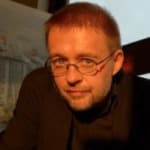 Philosopher, novelist, filmmaker and investigative journalist. He covered wars and conflicts in dozens of countries. His latest books are: “Exposing Lies Of The Empire” and “Fighting Against Western Imperialism”. Discussion with Noam Chomsky: On Western Terrorism. Point of No Return is his critically acclaimed political novel. Oceania – a book on Western imperialism in the South Pacific. His provocative book about Indonesia: “Indonesia – The Archipelago of Fear”. Andre is making films for teleSUR and Press TV. After living for many years in Latin America and Oceania, Vltchek presently resides and works in East Asia and the Middle East. He can be reached through his website or his Twitter.
Philosopher, novelist, filmmaker and investigative journalist. He covered wars and conflicts in dozens of countries. His latest books are: “Exposing Lies Of The Empire” and “Fighting Against Western Imperialism”. Discussion with Noam Chomsky: On Western Terrorism. Point of No Return is his critically acclaimed political novel. Oceania – a book on Western imperialism in the South Pacific. His provocative book about Indonesia: “Indonesia – The Archipelago of Fear”. Andre is making films for teleSUR and Press TV. After living for many years in Latin America and Oceania, Vltchek presently resides and works in East Asia and the Middle East. He can be reached through his website or his Twitter.
=SUBSCRIBE TODAY! NOTHING TO LOSE, EVERYTHING TO GAIN.=
free • safe • invaluable
[email-subscribers namefield=”YES” desc=”” group=”Public”]
Revised version, second iteration 6.8.16



